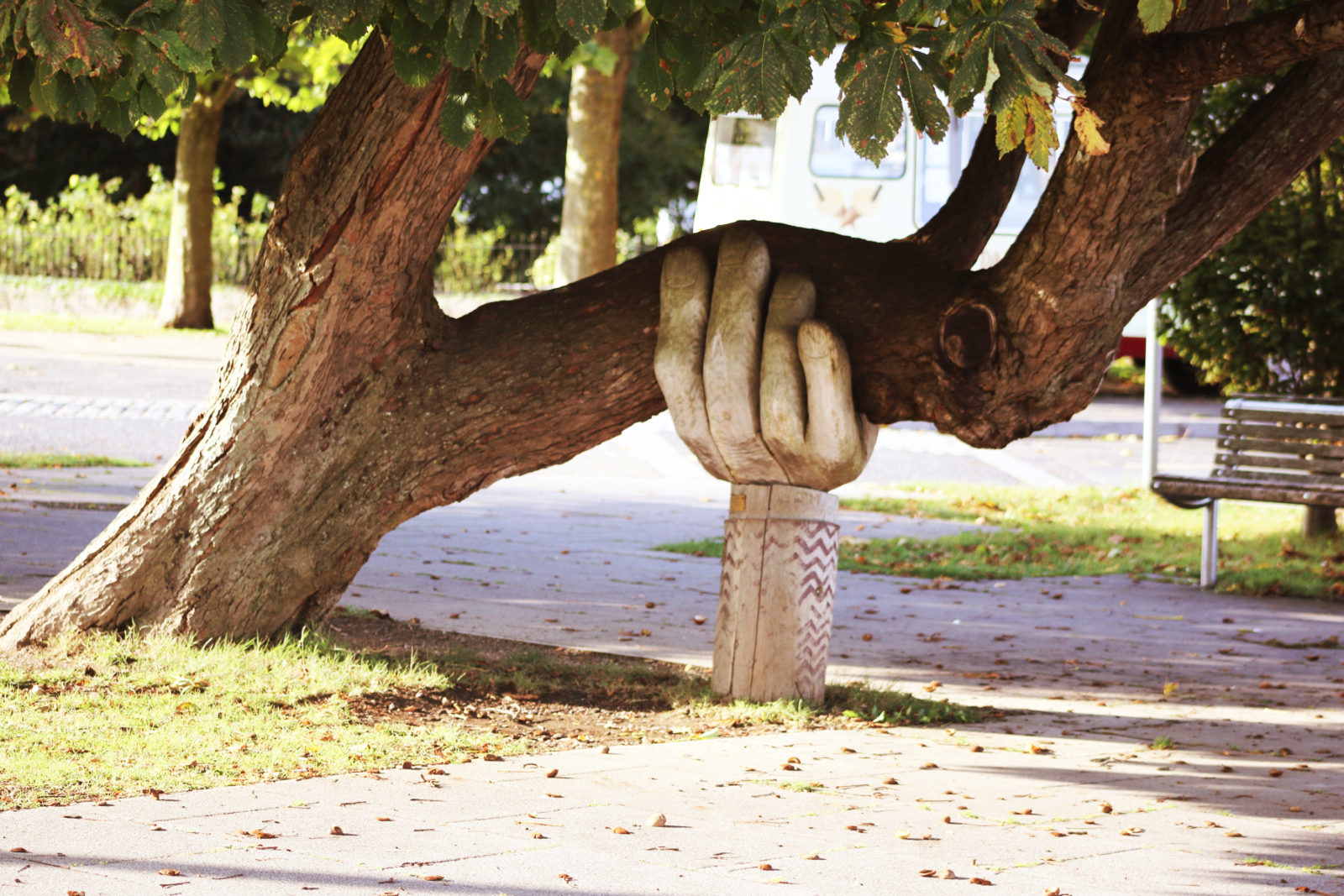I said I’d try to include an example of discernment in this month-long series. While I am sure there will be more to come, here’s the first.
The Example

This meme was posted on a FB page that I generally like very much. Her pictures are well-done and meaningful. She gives a lovely variety of quotes, Bible verses, and encouraging thoughts.
And this one is no exception. But it is a meme. And with most memes, I find it useful to take a second to examine them before I move off down my newsfeed.
Here’s why.
Discerning Memes
Memes are one of the most powerful and dangerous tools in our current arsenal.
They are short, pointed, visual, and very easy to absorb. I don’t have to give them lots of thought. I see a meme, and the 2.3 seconds I have to scan my newsfeed are enough to internalize its meaning. Perfect for our busy lives.
And that isn’t bad. Truly.
In a world that’s almost given up on long-form writing and thinking (*deep sigh*), snippets of truth are, at least, truth. And they can be encouraging, helpful, memorable, and shareable (which is lovely if you’re platform building).
But there is a flip side, of course. The very fact that they are short and memorable means they lack context. And therefore they can be understood to mean much more (or less) then they were intended to share.
Even worse, when we boil big ideas down too small, they have a better chance of twisting, ever so slightly. And those twists are where the danger comes in.
So we don’t have to throw out all memes. We absolutely shouldn’t. But we do need to approach them with a discerning mind. Generally, I ask a meme two things: “Is this really true?” and “What harms come from me absorbing this idea?”
Is It True?
The first question is, of course, the most important. And in terms of biblical discernment, what we mean by that question is, “What does the Bible say?”
To be honest, as a recovering overachiever, every time I see a meme that mentions doing my best or a similar idea, I get edgy.
I spent so many years performing for God, trying to impress him, believing he’d be proud of me if I needed less of his grace which he could then pour out on “those who really needed it.” (insert eye roll here) Clearly, I had a lot of things wrong.
So in our example of discernment today, I was instantly wary. Do my best to do my best and trust God with the rest? The rest of what? Well, what I couldn’t handle on my own, of course.
And that one, as usual, is a problem for me. I certainly have a role to play in my spiritual maturing (Philippians 2:12–13). But I also have to keep in mind that any work I do that is not empowered by the Spirit is, ultimately, worthless.
An Example of Discernment
The Bible says:
Isaiah 64:4–8 Since ancient times no one has heard, no ear has perceived, no eye has seen any God besides you, who acts on behalf of those who wait for him. You come to the help of those who gladly do right, who remember your ways. But when we continued to sin against them, you were angry. How then can we be saved? All of us have become like one who is unclean, and all our righteous acts are like filthy rags; we all shrivel up like a leaf, and like the wind our sins sweep us away. No one calls on your name or strives to lay hold of you; for you have hidden your face from us and have given us over to our sins. Yet you, LORD, are our Father. We are the clay, you are the potter; we are all the work of your hand.
As I said above, context is a big deal. That is particularly true with the Bible, so I included the surrounding verses of the most famous one (verse 6) that actually has the idea I was thinking about.
In this passage, Isaiah is clearly comparing us, and our righteousness, to God himself. Our righteousness, the best of our best, is like “filthy rags” to him. And, I’ve read, the better term for this would be menstrual rags.
Biblically speaking, God doesn’t need my best. In comparison to his holiness, my best is nothing but filthy, bloody rags. Thankfully, he can use what we think is our best to work out his ultimate purpose, not because our best is so great, but because HE IS.
What’s the Effect?
This meme doesn’t quite match up, biblically. It’s not wrong, but as usual, it’s too small. God can handle any of our situations or needs. But he doesn’t need us to do the best of our best before he steps in. And he only waits that long because we think we’ve got things covered.
Frankly, it’s better all around if we let him step in much sooner, like from the very beginning. We tend to make much bigger messes otherwise, if we’re honest.
I don’t need to do my best for God. I need to wait for him, walking in the Spirit and letting him empower what I do so that my “best” actually becomes “his best in me.”
And frankly, I like the sound of that much, much better.
Your Turn: So there is our first example of discernment. Leave a comment to discuss what you think. I’d love to dialogue with you.



